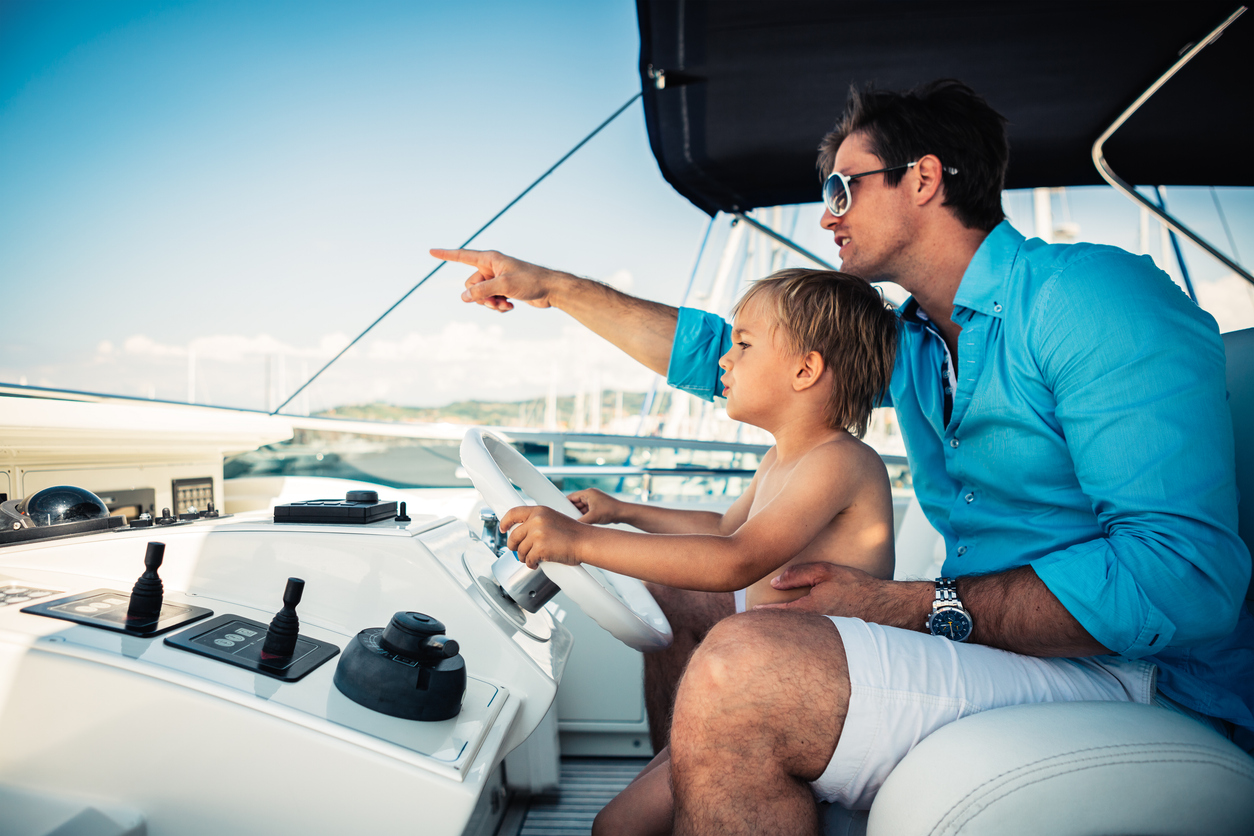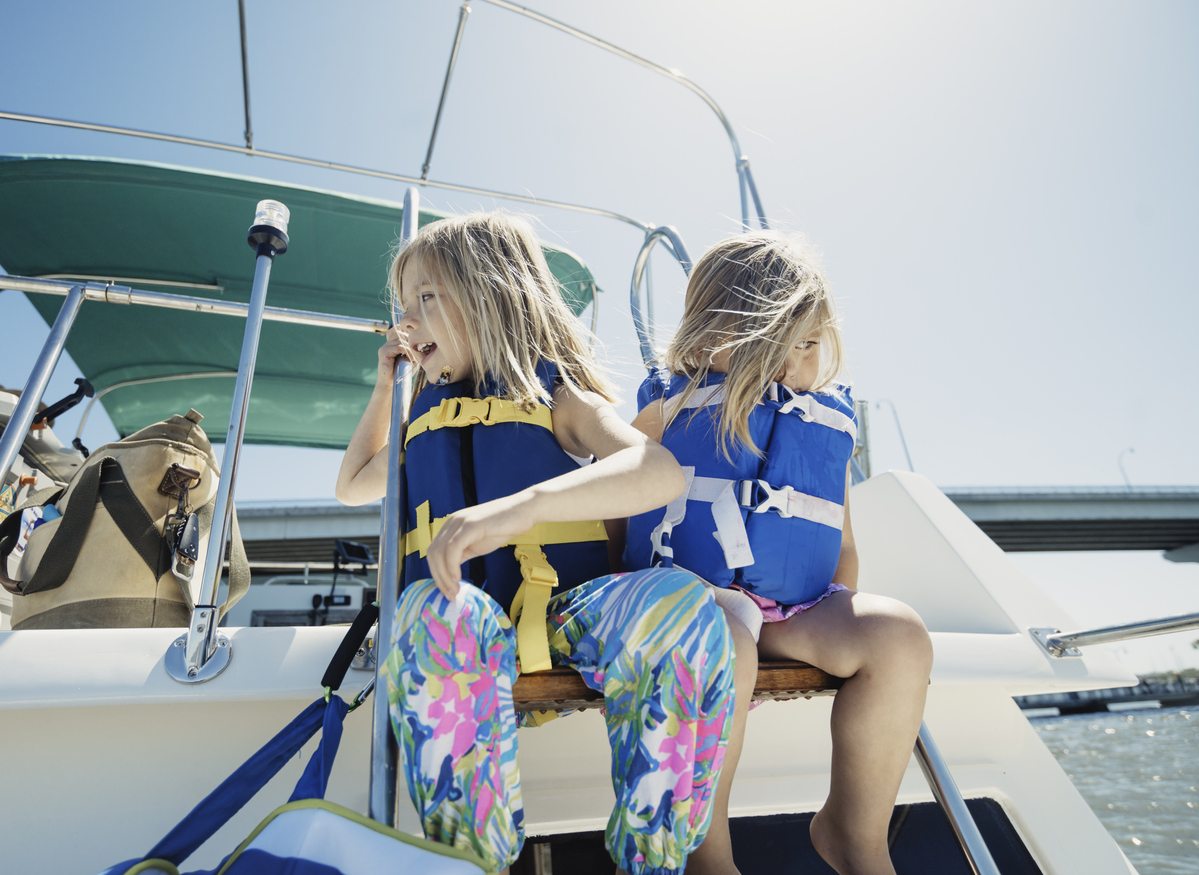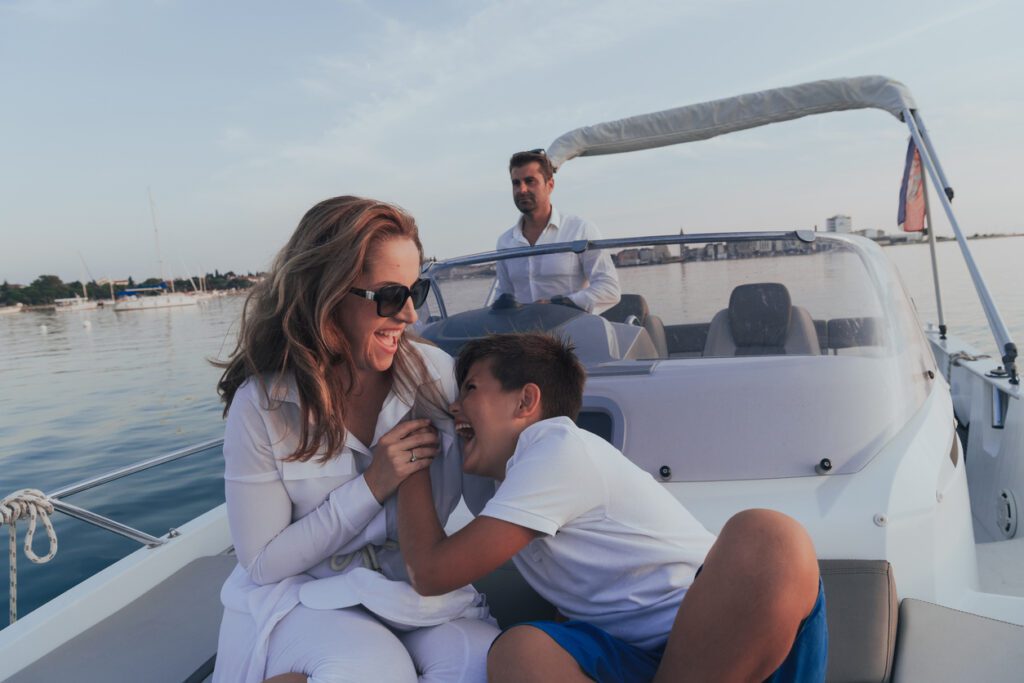If you’re looking for an activity that will get your kids out of the house this summer, there is nothing greater than spending the day out on the water in a boat. The fact is that boating can be a fun activity for the whole family. This is whether you enjoy swimming, skiing, or tubing. However, while boating can be fun for the whole family, you must take certain precautions to keep them safe. To ensure your family has a fun, safe time out on your boat, keep reading as we take a look at our top tips for safe boating with kids.
Choose the Right Safety Gear for Safe Boating With Kids
Before boating with your family, it is essential to purchase quality safety gear, including properly fitting life jackets. While it’s recommended that everyone on a boat wear a life jacket at all times, it is particularly important that young children wear them. They may not be strong swimmers, and this piece of safety equipment can be lifesaving if a child falls overboard. Not only are lifejackets essential for safety, but the Coast Guard requires all children under 13 to wear a life jacket at all times on board. This is even if the boat is anchored.
Make sure that the life jackets you purchase fit properly and are U.S. Coast Guard-approved. Life jackets should fit snugly with no gaps around the neck or armholes. The weight and chest size should also match your child’s proportions. To ensure the effectiveness of your life jackets, it is also essential that you replace them immediately if they become faded or show signs of wear, such as frayed straps or webbing. This is essential when boating with kids.

Establish Clear Rules
Before you leave the dock, you should go over essential rules regarding boating with kids to ensure their safety out on the water. Engaging children in conversations about boating safety can help them understand the importance of their actions on the water. Make it clear to them that they must stay seated at all times with their hands and feet inside the boat when the boat is in motion. So, they do not injure themselves or fall overboard. You should also emphasize the importance of not running around or jumping while on the boat to prevent avoidable accidents. Taking the time to go over a few dos and don’ts before you set sail can go a long way in ensuring your family has an enjoyable, safe boating experience.
Practice Emergency Drills
Practicing emergency drills is such a significant aspect of boating with kids. As part of your boat safety orientation, you should also consider practicing a few safety drills so that everyone onboard knows what to do in the event of an emergency. Teaching older children proper procedures for certain emergencies, such as what to do in man-overboard scenarios, can go a long way in equipping them with the knowledge and confidence to act quickly and make smart decisions in challenging situations. This includes ensuring that your children know where important equipment, such as flags, emergency signals, and first aid kits, are located, and teaching them basic boat terms such as starboard and port.
Supervision Is Essential for Boating With Kids
In order to ensure your kids’ safety on the water, they must be under constant supervision, especially when they are near or in the water. Don’t let your guard down, as this is when something bad can happen. Assign an adult on the boat to supervise the kids and keep an eye on their activities at all times, particularly when the boat is in motion. Consider taking turns being the water so that each adult can have a chance to socialize, swim, or read a book while still ensuring that someone always has an eye on the kids.
Turn Off The Engine When Swimming
While this may sound like a no-brainer, it is essential that you make sure the boat’s engine is off before anyone enters the water. This is important when boating with kids. Even if someone is entering the water for watersports such as tubing, make sure that the boat is off before they jump in the water, then start it again when they are situated and a safe distance from the boat. This will minimize the risk of accidental propeller injuries that can occur when swimming near a boat, which is particularly common with children who may not be looking out for the propeller.
Keep Your Family Hydrated and Protected From the Sun When Boating With Kids
To keep your kids safe and happy during your day out on the water, take extra precautions to keep them hydrated and protected from the sun. While staying hydrated and wearing sunscreen is essential for all boaters, it is particularly important for kids. This is because kids are more prone to dehydration, and kids have thinner skin. This also makes them more prone to dangerous sunburns. You should then make sure that you are regularly encouraging your kids to drink water throughout the day. You should also have a talk with them about the importance of protecting their skin from the sun and wearing hats, sunglasses, and sunblock whenever they’re on the boat. Not only will this help keep them safe, but it will also help them develop smart habits now that they can continue when they’re older.

For a Boating Experience the Whole Family Will Love, Choose Boat Storage at a Marina by Trident Marine Group
With the right safety precautions, boating with kids can be a fun and exciting way for the whole family to spend time outside this summer. However, if you want to enhance the boating experience, consider storing your boat in a slip at one of our marinas at Trident Marine Group this summer. Our marinas offer best-in-class amenities the whole family will love, such as pools, onsite restaurants, tennis courts, private beaches, and concierge services. Feel free to contact us today to learn about the amenities each of our marinas offers, as well as for more tips on safely boating with children.

